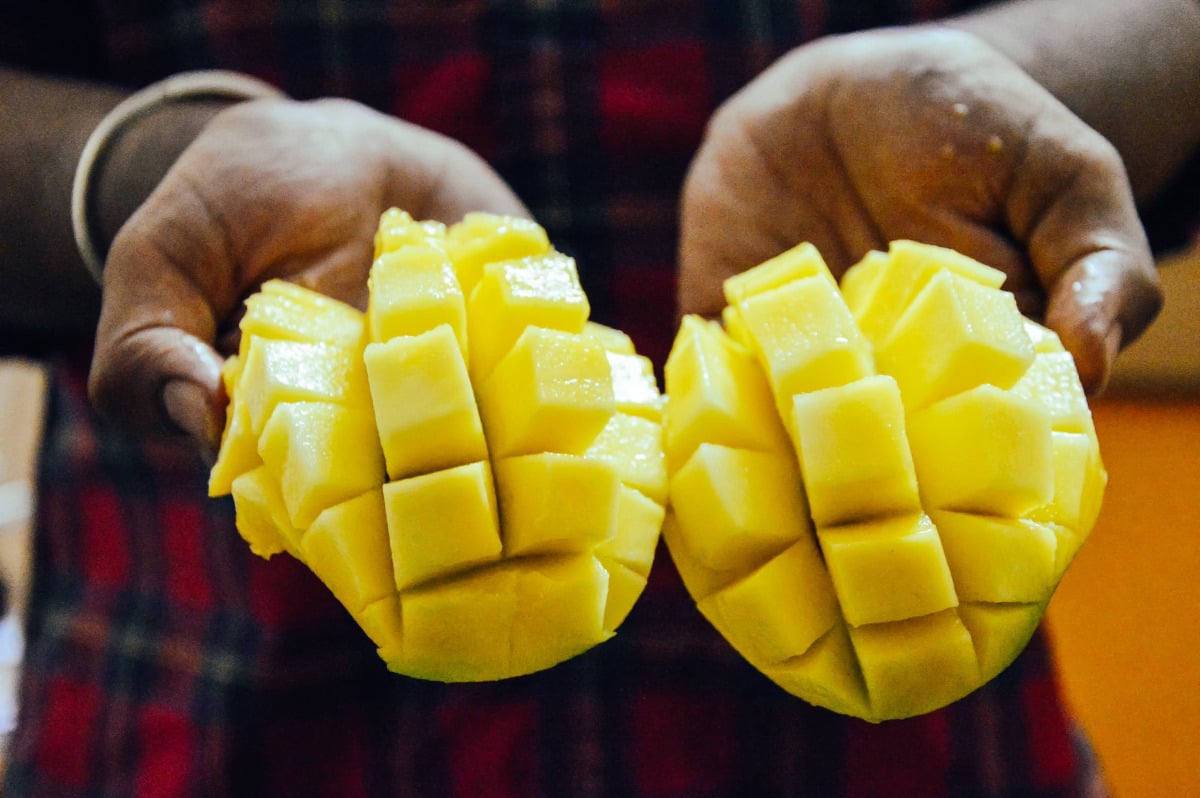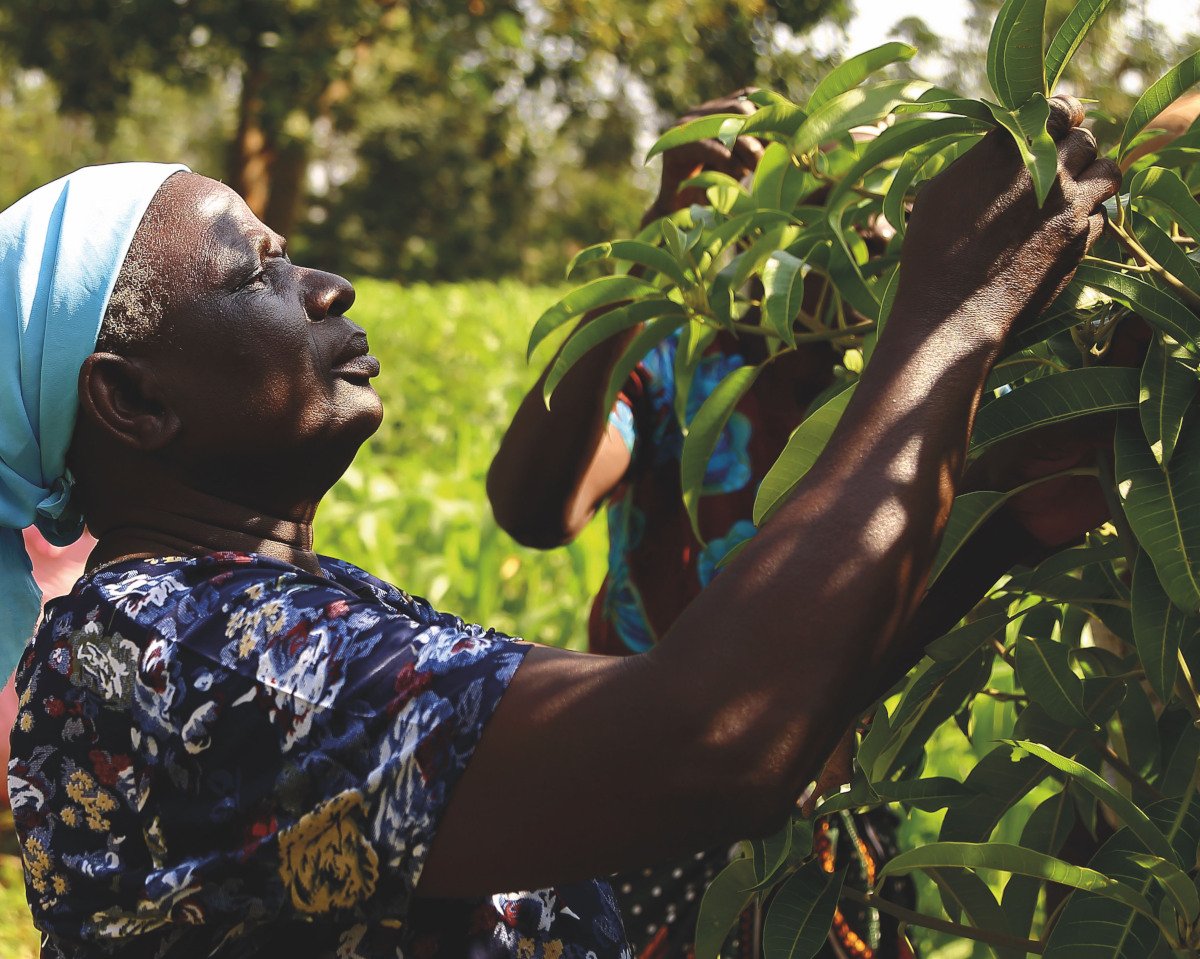- Blog
- natural food
- Mango? Good...
Mango? Good for everyone!
Aug 20, 2021 | written by: People at Treedom
From tradition to nutritional analysis: the mango is a fruit that is good for you in many ways. And planting a tree is even better!
In some parts of the world, the mango, or Mangifera indica, is known as the 'king of fruits'. This could be due to its enchanting taste, or perhaps because it was once a luxury good, often served exclusively to kings and nobles. The truth is, we don’t really know the reason.
What we do know is that the mango is native to India and South-East Asia and has been cultivated for over 4,000 years. And we know that mangoes are not only delicious, they also have an impressive nutritional profile.
In fact, countless scientific studies [1] espouse the health benefits of mangoes and their impressive nutrient profile.

Rich in nutrients
Low in calories and rich in nutrients. How many there are is only really clear when you take a closer look at the ingredients.
165 grams (1 cup) of sliced mango contains:
|
Proteins |
1.4 g |
|
Carbohydrates |
24.7 g |
|
Dietary fibre |
2.6 g |
|
Vitamin C |
67% Recommended Daily Intake |
|
Copper |
20% RDI |
|
Folic Acid |
18% RDI |
|
Vitamin B6 |
11,6% RDI |
|
Vitamin A |
10% RDI |
|
Vitamin E |
9,7% RDI |
|
Vitamin B5 |
6,5% RDI |
|
Vitamin K |
6% RDI |
|
Niacin |
7% RDI |
|
Potassium |
6% RDI |
|
Riboflavin |
5% RDI |
|
Magnesium |
4% RDI |
Impressive, isn't it? In fact, hardly any food contains so many nutrients in such a concentrated form. But that's not all: mangoes are easy to digest, high in fibre and low in acid.
In addition to their many ingredients, they also have another 'superpower'. They are rich in antioxidants [2]. More precisely, polyphenols - plant compounds that fight free radicals in the body. Studies show that polyphenols are able to slow down the ageing process and, to a lesser extent, protect against chronic diseases such as cancer or diabetes.
The high magnesium content helps to keep the amount of cholesterol in the blood down and is therefore good for the heart and blood pressure in the long term. Mango also contains a digestive enzyme called amylase, which has an extremely positive effect on the health of the gastrointestinal tract.
It has to be said that compared to other fruits, mangoes have a high fructose content and therefore also a lot of (natural) sugar, making mango one of nature’s sweetest temptations.
Still not convinced?
Read more about the benefits of mangoes here.
Why we plant Mangoes
Mangoes may be good for our bodies, but they can do more!
As Treedom, we plant mango trees in many of our projects because they offer a chance for many of our farmers and beneficiaries to have additional income, as well as a food that can make their diet more varied and healthy. All while helping to make the planet a little greener.
That's why we plant mango trees - because with trees you can help the planet and have a positive social impact at the same time.
If you love yourself, eat more mangoes. If you love other people and our planet, plant a mango tree. By doing so, you are playing a small part in securing the future of small farming communities - one tree at a time.
It's our choice! And if you'd like to join us, just click!
(Mango tree in a Treedom project in Kenya)

